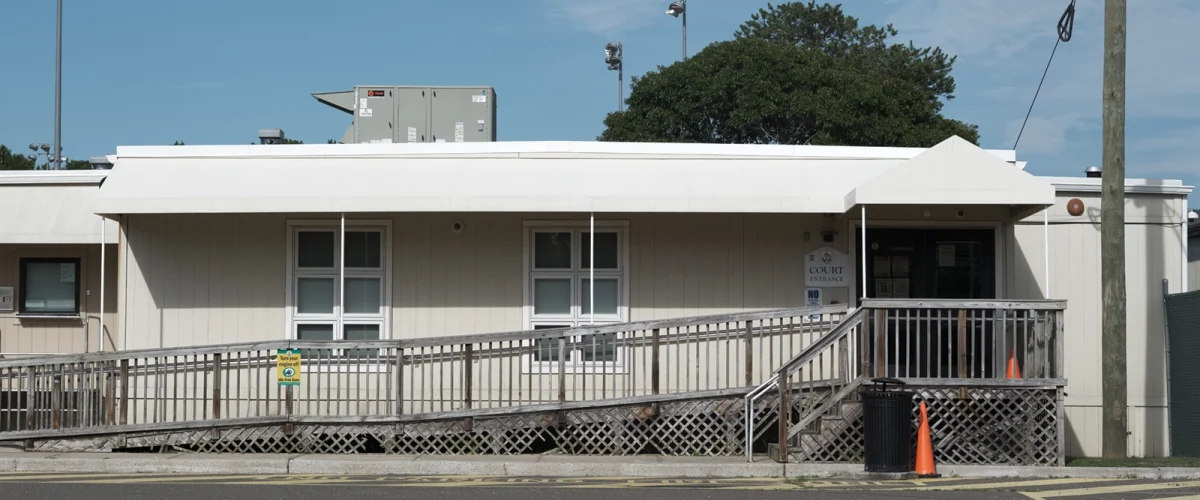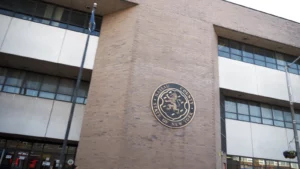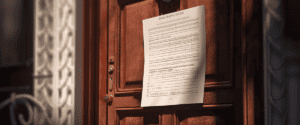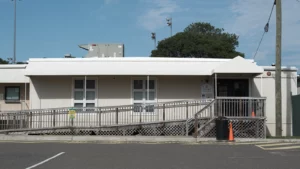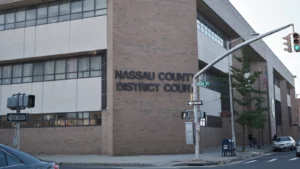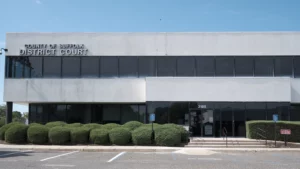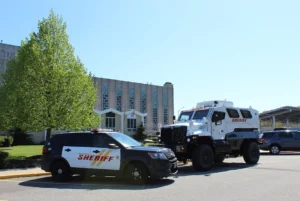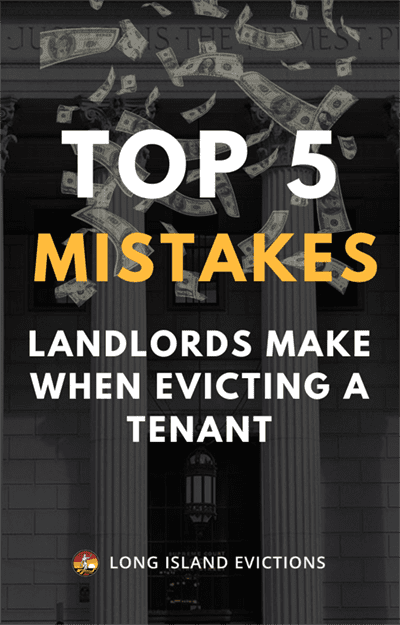Squatters rights in New York:
The Definitive Guide to Getting Them Out
If you own real property in New York, it is important for you to understand squatters’ rights so that you know what a squatter is, how the law works, and how you can protect your property.
On Long Island, squatters can quickly become a landlord’s worst nightmare. Especially when residential rights can be established so quickly.
Who is Considered a Squatter in New York?
A squatter is someone who intrudes upon a foreclosed, abandoned, or unoccupied building or area of land without the knowledge or permission of the owner. This means the squatter does not rent or own the property. Entering the property without permission is an act of squatting, which is surprisingly common in the United States.
In New York, a squatter can also be someone who is tricked into believing he or she is a legitimate tenant by someone who has no right to rent the property. There are many nonprofit agencies across New York State that are notorious for teaching people how to use the law in their favor and there are con artists everywhere who trick individuals into signing fake leases and paying rent for places they have no right to occupy.
Squatting can be intentional, and it can even happen by accident. But a squatter is always defined as someone who moves into a property, and lives there without the owner’s permission or knowledge.
Who is NOT a Squatter?
If someone enters a property with the consent of the owner or lawful occupant and lives there continuously for at least 30 days, they are considered a licensee under the law. They must be evicted in a special holdover proceeding intended for licensees.
If a tenant fails to move out of their apartment after their lease expires, or if they stop paying rent and refuse to leave, they are not squatters under New York law. Their legal status is still tenants, and tenants generally never become squatters.
Are there Professional Squatters on Long Island?
Yes, there are professional squatters out there. You can’t even call them criminals. They know the laws, and they know how to work the system. If you catch somebody breaking into your house, they can be arrested for breaking and entering, criminal trespassing, or burglary. But if you happen to live out of State, somebody breaks into your house and you don’t notice for 30 days, then that person becomes a squatter, and you have to go through the court process to evict them.
What's the Difference Between Squatting and Trespassing?
Trespassing is part of squatting, which means that every squatter is a trespasser. But not every trespasser is a squatter. If someone looking for shortcut to their destination cuts through your yard, they are trespassing. Likewise, if a homeless person spends a night sleeping in your garage, they too are trespassing. But once they remain in possession of the property for 30 continuous days, they become squatters.
Squatters take trespassing to the next level: they have the intention of taking an ownership claim and/or making the property their permanent residence.
Trespassers can eventually turn into squatters if they occupy the property for a long enough period of time. When trespassing turns into squatting, the only way to lawfully remove the squatter is through the eviction process.
Landowners must act quickly and notify the police about any squatters before 30 days pass, as afterward, the squatter has vested rights and law enforcement can no longer file trespass charges.
Squatters may lie to authorities and claim a right to be on the property. They can do this by presenting false documents or invalid deeds to law enforcement or property owners. This is always illegal.
When a squatter makes a legal claim to a property, they are seeking permission to reside there, at least for the time being.
Call or Text
Have Questions? Speak with Us For Free.
We offer free consultations via phone or text. Don't wonder about what your rights are or what your next move is. Call or text and find out right now.
What About Hold-Over Tenants?
Holdover tenants are tenants who stay on a property after their lease has ended or their tenancy has otherwise been terminated. In this situation, the tenant is responsible for paying use and occupancy at the same rate as rent.
When a lease period ends or a tenancy terminates, but the tenant remains, they are considered to be a “hold-over tenant.” If a landlord or owner accepts rent from them after the end of their lease, they become month-to-month tenants.
What if the Squatter Claims Adverse Possession?
Adverse possession is a legal concept that allows a person to gain ownership of another person’s property without the owner’s permission. This is done by occupying and using the property while claiming continuous possession for a certain period of time, usually between five and twenty years depending on the state. In New York, adverse possession laws require that the squatter occupy and use the property for at least 10 years in order to have an adverse possession claim.
Usually the true owner of the property discovers that they have a squatter well within this 10-year time period, so it is unlikely you would be dealing with an adverse possession claim. But if you’d like to learn more about adverse possessions on Long Island, you can read more in our articles section.
What Rights Does a Squatter Have?
Squatter’s rights allow a squatter to continue to occupy a property in the event that the true owner or landlord does not take action within a certain time frame.
According to New York state law, squatters can gain a protected classification after 30 days of living at a property. To reclaim the property after 30 days, the true owner must evict the squatter in landlord tenant court and go through the entire evictions process. Sometimes a landlord will even just pay off the squatter to avoid the legal fees and court costs.
After a squatter has lived in the property for longer than 30 days, the squatter may only be evicted through court proceedings. In other words, after 30 days, it becomes a civil matter and not a criminal one.
Before the 30-day period ends, a squatter is nothing more than an intruder, and as such can be removed by the police and charged with a criminal offense. In certain scenarios, a homeowner may use self-help to evict the squatter if they have been there for less than 30 days.
Why Do Squatters Have Rights?
Squatters’ rights exist to discourage the use of self-help. If landlords and homeowners were allowed to use violence or the threat of violence to evict squatters, the situation could quickly escalate and become dangerous for everyone. The authorities also want to disincentivize evicting people with no notice, even if they don’t have permission from the homeowner to live there.
How Can a Landlord Evict Squatters in New York
Once a trespasser officially becomes a squatter, a landlord or homeowner cannot remove the squatter from their premises without court intervention.
To evict a squatter, the landlord or property owner must begin the eviction process, just as if they were evicting a tenant.
The squatter must be served with any required predicate notice, and must be served with the notice of petition and petition. If the squatters fail to vacate the premises after being served, you will be required to appear in court, and possibly even have a trial to establish your rights to reclaim the property. If you win, you will receive the paperwork necessary for the sheriff or enforcement officer to physically remove your squatters from your property.
Sometimes evicting squatters will have complications, often because squatters may claim to be an innocent victim. For example, claiming they are actually tenants because they signed a fraudulent lease agreement that they did not know it was fraudulent, and paid rent to a con artist or they made a verbal agreement with the owner to make improvements on the property instead of paying rent, even if it was not the actual owner.
In most cases, the process for evicting a squatter is similar to the normal landlord tenant law residential eviction process used to remove licensees:
Review the eviction laws for your state or hire an attorney who specializes in residential evictions to assist with your case.
Make sure you have a legal standing to evict, such as having served the squatter with the proper predicate notice.
Consult with your eviction attorney to see if it makes good business sense to reason with the squatter and try to convince them to leave, perhaps by offering them a cash incentive, instead of incurring legal fees and court costs to evict the squatter.
The landlord must also serve the squatter with the proper forms. Different predicate notices are required for different types of evictions, depending on the factual circumstances.
If you discover someone residing on your property without your consent, the first thing you need to do find out who they are and the date and circumstances of how they came to be there. If you can establish that they have been there less than 30 days, call the police. The police can remove trespassers. If they claim squatters’ rights or claim that they are a legal tenant, then you have to serve them with an eviction notice and go through the legal process.
What can you do to prevent a squatter from gaining squatters’ rights?
If a landlord or property manager wants to avoid squatters, they should take steps to secure the premises, such as blocking all entrances, posting no trespassing signs, and checking on the property regularly (especially if the property is vacant, which would be harder to spot for an off-premises property owner and rand would allow someone to gain possessory rights after 30 days).
Here are a few tips to protect yourself from getting into one of these scenarios:
If your property does not have any tenants or anyone who is living there with your permission, ensure that the property is secured properly so that no one is able to break in and stay without authorization.
Check on your vacant property intermittently. In a state like New York, where it only takes 30 days to establish squatters’ rights, visits should occur at least every 2-3 weeks. If you are an absentee landlord, ask a friend or family member in the area to check on the property, or hire a property manager to keep things in order.
In New York, understanding the laws on squatter’s rights and the eviction process is important. This process starts with serving the occupying individual a Notice to Quit, allowing them a period of 10 days to vacate the premises. If the squatter refuses to leave after receiving the notice, then your next step is to file a hold-over petition with your local landlord tenant court to set the eviction process in motion.
Ensure that you are adequately covered by homeowners or renters insurance and you have plenty of liability coverage in case a squatter causes damage to your property.
Even if you are cautious, sometimes squatters can still end up on your property. In this case, it’s best to reach out to a lawyer and take immediate action.

